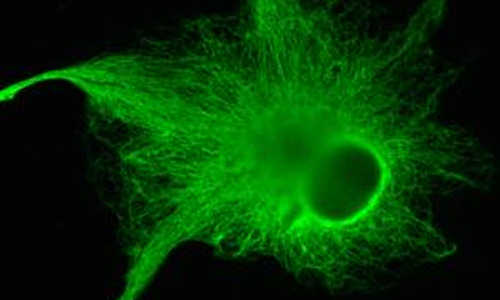What would Stuart Little make of it? Mice have been created whose brains are half human. As a result, the animals are smarter than their siblings.
Researchers at the University of Rochester Medical Center in New York extracted immature glial cells from donated human fetuses. They injected them into mouse pups where they developed into astrocytes, a star-shaped type of glial cell. Within a year, the mouse glial cells had been completely usurped by the human interlopers. The 300,000 human cells each mouse received multiplied until they numbered 12 million, displacing the native cells.
“We could see the human cells taking over the whole space,” says Goldman. “It seemed like the mouse counterparts were fleeing to the margins.”
Astrocytes are vital for conscious thought, because they help to strengthen the connections between neurons, called synapses. Their tendrils (see image) are involved in coordinating the transmission of electrical signals across synapses.
Human astrocytes are 10 to 20 times the size of mouse astrocytes and carry 100 times as many tendrils. This means they can coordinate all the neural signals in an area far more adeptly than mouse astrocytes can. “It’s like ramping up the power of your computer,” says says Steve Goldman of the University of Rochester Medical Center in New York.
Story Source:
The above story is based on materials provided by Newscientist.
more info: http://www.newscientist.com/article/dn26639-the-smart-mouse-with-the-halfhuman-brain.html#.VICE9tLGpfh





